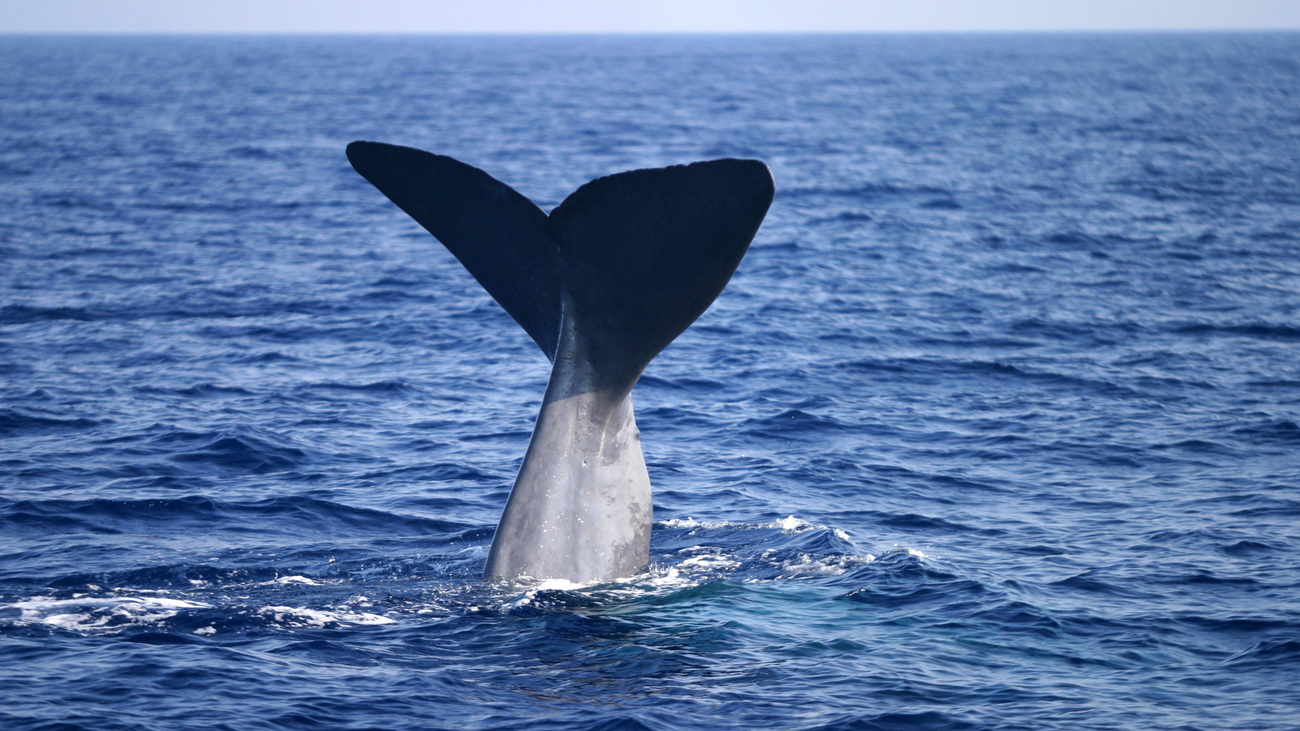Sharon Livermore
sperm whales need urgent protection from ship strikes in Greece
sperm whales need urgent protection from ship strikes in Greece

In the eastern Mediterranean, a long, narrow underwater canyon known as the Hellenic Trench can be found off the coast of Greece. This trench is around 4,150 metres to 5,300 metres deep and includes the deepest point in the Mediterranean Sea – the Calypso Deep. Both the incredible depths of the Hellenic Trench and complex seabed features make it perfect habitat for deep-diving marine mammals, including sperm whales and beaked whales.
In fact, the Hellenic Trench is critical habitat for the endangered eastern Mediterranean sperm whale population, which are believed to number only 200 to 300 individuals. It is also the only place in the Mediterranean where female sperm whales with their calves are known to feed, breed and nurse.
However, concern has been growing over the number of sperm whales hit by ships in this area. Over 50% (13 out of 24) of sperm whale strandings examined between 1992 and 2016 along the coast of Greece showed clear evidence of ship strikes, raising considerable conservation and welfare concerns for this population.
A whale struck by a ship will often suffer a slow, painful death and for those not killed immediately, a collision can result in horrific and serious injuries. Furthermore, only a small proportion of the whales that are struck are likely to strand and in many cases, large ships are unaware that they have collided with a whale.
Fortunately, this is a problem with a solution.
Research on the distribution patterns of sperm whales and shipping in the Hellenic Trench has shown that shipping routes currently overlap with areas where high numbers of sperm whales are likely to be present throughout the year. Small changes in routing away from these areas would greatly reduce the risk of collisions.
IFAW is collaborating with Greek scientists of the Pelagos Cetacean Research Institute and with WWF-Greece to help make real changes in the water for these animals. The International Whaling Commission (IWC) agrees that the Hellenic Trench is a high-risk ship strike area and has made a number of recommendations to reduce the risk to whales. ACCOBAMS (the Agreement on the Conservation of Cetaceans of the Black Sea, Mediterranean Sea and contiguous Atlantic area) also supports developing a ship routeing proposal for this area. Greece is party to both the IWC and ACCOBAMS.
We have started a dialogue with the shipping industry to discuss routing options, and are offering support and assistance to the Greek authorities in the development of a proposal to the International Maritime Organization (IMO) to move ships away from sperm whales. What is now needed is the political will of the Greek government to help protect these endangered whales, before it is too late.
-Sharon Livermore, Program Officer, Marine Conservation
Related content
Our work can’t get done without you. Please give what you can to help animals thrive.